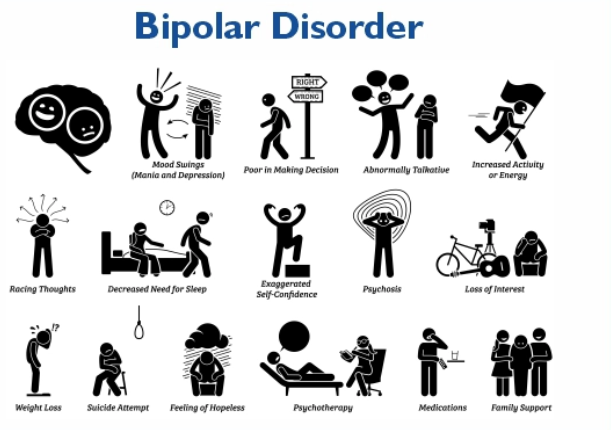In bipolar disorder know the basics on symptoms, diagnosis and treatment to help you deal with this mental health condition.
There are a lot of misconceptions about bipolar disorder, which is a difficult condition. You understand that bipolar disorder is much more than just transient, daily mood swings if you have it. Rather, depressive episodes can impair your ability to function and leave you feeling hopeless for weeks at a time. Periodically occurring manic episodes are characterized by excessive energy accompanied by insomnia, hyperactivity and talkativeness, and out-of-character behavior that can cause people to lose recognition of the previously familiar you.
Also read-Liver Disease : A Patient’s Guide To Liver Disease And Its Symptoms
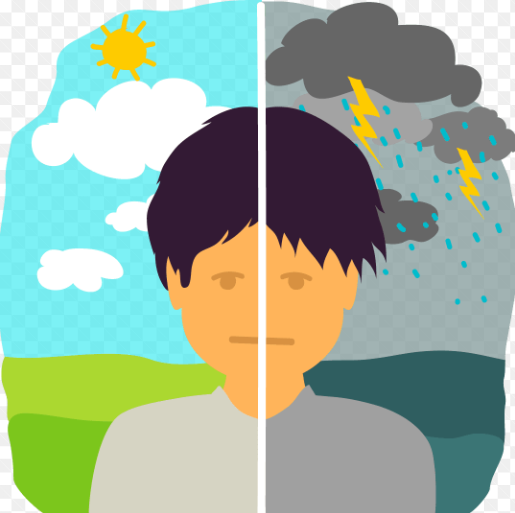
“In bipolar disorder, mood can become unregulated and with it sleep, energy, activity, concentration (and) appetite,” explains Dr. Jess Fiedorowicz, director of the Mood Disorders Center and associate professor at the University of Iowa. “Just as the temperature of a building might widely fluctuate with a broken thermostat.” One’s capacity to operate at home or at work may suffer as a result of this. The mood swings associated with bipolar disorder typically last for weeks or months rather than minutes, despite the term’s regrettable misuse in popular culture.”
Signs and symptoms of bipolar disorder
Mania and depression typically present with distinct symptoms, though individuals with bipolar disorder may encounter both at the same time. Generally speaking, depending on the kind of episode, people experience at least some of these symptoms:
Mania symptoms
- Irritability, hyperactivity, and excitability.
- Much less sleep.
- Thoughts racing.
- Remarkably quick speech for her.
- Reduced ability to tolerate frustration.
- Impetuous behavior.
- Magnificence.
- Delusions and hallucinations.
Depression symptoms
- Prolonged loss of energy.
- Feelings of guilt and worthlessness.
- Sadness.
- Hopelessness.
- Unwanted weight loss or weight gain.
- Sleep difficulties from excessive sleeping to insomnia.
- Decrease in performing daily activities (like bathing).
- Suicidal thoughts.
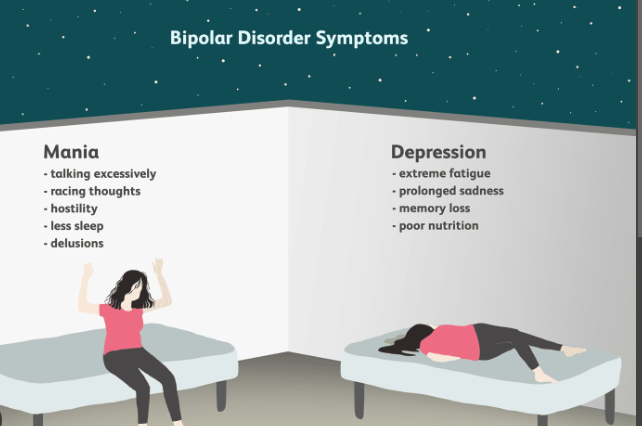
Types
To meet the medical criteria for bipolar disorder, people must have a history of one or more manic or hypomanic episodes. Bipolar I is the most severe category. People with Bipolar I disorder have had a manic episode lasting a least a week or have been hospitalized with severe mania. Major depression lasting 14 days or more may be a feature. Bipolar II involves episodes of hypomania – a milder form of mania – and depression.

Causes
Bipolar disorder risk factors include family history. You run a higher risk if you have a first-degree relative with the illness, such as a parent, brother, or sister. Research that was published in the May 2019 issue of the journal Nature Genetics shows that multiple genes are involved. Thirty gene associations with bipolar disorder were found in the extensive international study.
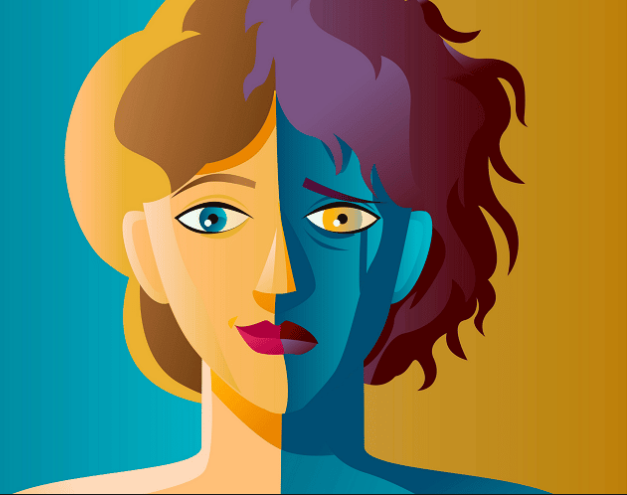
Diagnosis
For adults and adolescents alike, the bipolar diagnosis can be difficult to make and a long time coming. Both under- and overdiagnosis are widespread, Fiedorowicz says. “A careful clinical interview is required for diagnosis, ideally supplemented with information from someone who knows the person very well,” he says. “Symptoms of mania, the defining feature of bipolar disorder, are often better recognized by others than the person experiencing them.” The diagnosis may first come to light when a person seeks help for severe depression. For instance, the mental health history might reveal that one or more family members have bipolar disorder. A discussion of symptoms that may have started during adolescence can bring up red flags.
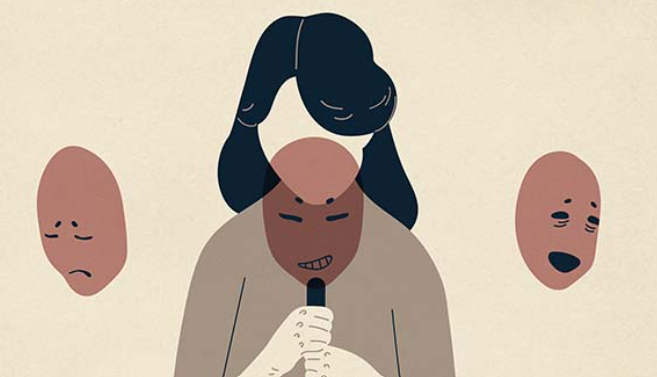
Treatment
Medication is the mainstay of bipolar depression treatment. A single drug or a combination may be used. In general, drugs fall into three categories:
- Mood stabilizers such as lithium and lamotrigine (Lamictal), which is also an anti-seizure drug, are approved for bipolar disorder maintenance therapy by the Food and Drug Administration.
- Antipsychotic medications used in bipolar disorder include olanzapine (Zyprexa) and risperidone (Risperdal).
- Antidepressants are sometimes used in conjunction with other drugs, but require particular caution in this group of patients.
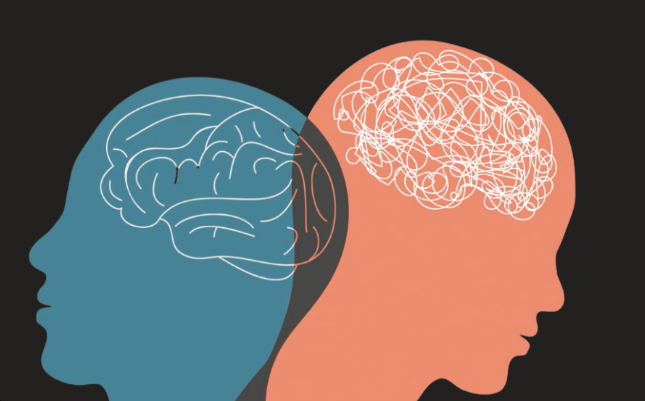
Also read-Hepatitis B : A Patient’s Guide To Hepatitis B And Its Symptoms
images source: Google
Disclaimer: The opinions and suggestions expressed in this article are solely those of the individual analysts. These are not the opinions of HNN. For more, please consult with your doctor.







